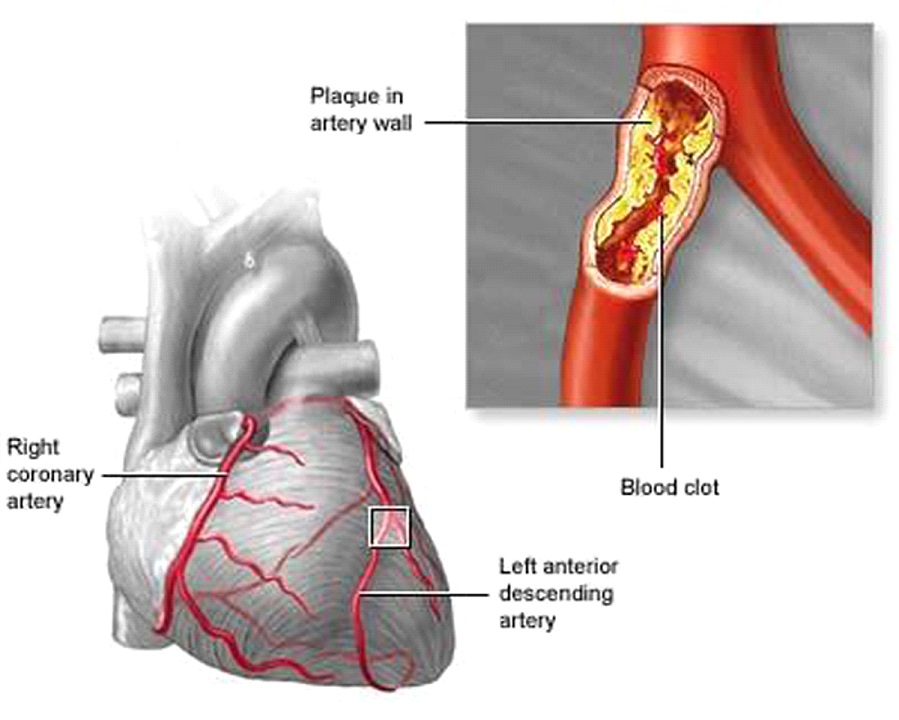Acute Coronary Syndrome Symptoms, Causes, Diagnosis and Treatment

What Is Acute Coronary Syndrome ?
It is basically a medical term that narrates any condition caused by the sudden, decreased flow of blood to your heart. Indication of acute coronary syndrome is the type of pressure one may feel in the chest during a heart attack, or while instable angina.
In addition to the characteristics of acute coronary syndrome, it is mostly detected in a hospital or emergency room. In case it is diagnosed on early basis, it is treatable. Its treatments tend to vary, relying upon the overall health and symptoms of the patient.
What Are The Symptoms Of Acute Coronary Syndrome ?
Indications of the condition are more or less similar to the ones with a heart attack. In case no prompt action is taken for its treatment, heart attack can occur. Therefore, it is very important to consider acute coronary syndrome as serious, and pursue immediate medical help. Symptoms of acute coronary syndrome are:
- Chet pain. More specifically, it may feel like tightness or pressure in the chest.
- Pain in the jaw or left arm, or somewhere else in your body.
- Breathing difficulties.
- Nausea, followed by vomiting.
- Heavy sweating.
What Causes Acute Coronary Syndrome ?
The condition is generally the complication of plaque accumulation that occurs in the coronary atherosclerosis that is the arteries in our heart. In addition to this, these plaques make the arteries narrow and causes problem for the smooth flow of blood through them.
Our body needs continuous supply of oxygen-rich blood for normal functioning. However, these accumulations make the heart unable to pump adequate blood to the body, resulting in a heart attack or angina.
Many instances of acute coronary syndrome tend to arise while the surface of plaque accumulation ruptures, resulting in the formation of blood clot. In addition to this, combination of blood clots and plaque accumulation considerably restrict the amount of blood that is flowing to the muscles of the heart. This increases the chances of heart attack.
How Is Acute Coronary Artery Diagnosis ?
In case of having the indications, the doctor will suggest few tests to determine either the heart attack is sourcing the signs or these are instigated by some type of chest discomfort. In case the health care provider doubts a heart attack, then he or she will recommend the following tests:
- Blood tests.
- Electrocardiogram.
Results of the aforementioned tests will help the doctor to judge the intensity of the patient’s condition. If these results portray no signs of heart attack, whilst the chest pain has resolve, the doctor will then conduct certain tests to observe the flow of blood through the heart.
On the contrary, if the results show that the patient has had, or is at an increased risk of heart attack, then the patient will be immediately hospitalize. He or she will then undergo more invasive diagnostic testing including a coronary angiogram.
Besides, some additional tests can also be conducted. These will be done to figure out whether the heart is damaged due to a heart attack, or an unknown, underlying condition:
- Chest X-ray.
- Echocardiogram.
- CT angiogram.
- Nuclear scan.
- Exercise stress test.
- Coronary angiogram.
How Is Acute Coronary Syndrome Treatment ?
Its treatment varies, relying upon the intensity of condition and the symptoms. Medications are prescribed for improving the blood flow through your heart and easing chest pain. Surgery and other procedures are needed, in case the medications failed to restore the normal flow of blood through the heart.
By : Natural Health News




